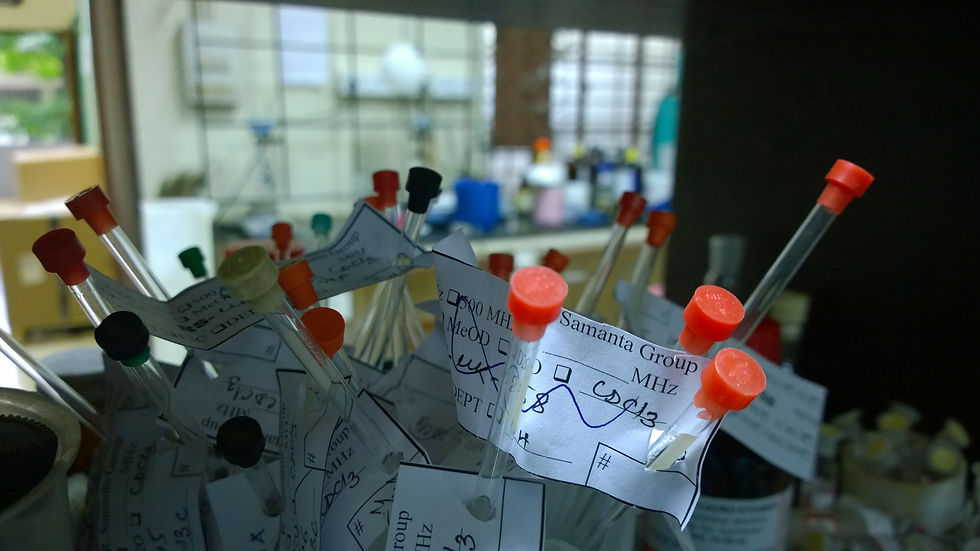

Research

“The ideal synthesis creates a complex skeleton in a sequence only of successive construction reactions involving no intermediary. Refunctionalization, and leading directly to the structure of the target, not only its skeleton but also its correctly placed functionality.” [Hendrickson, J. B. J. Am. Chem. Soc. 1975, 97, 5784.]
The outlook of synthetic organic chemistry is changing very rapidly. But one feature is still unique to all molecular architects i.e. the ability to design and development of new molecules. Basically, the pathways to achieve the targets are changing in synthetic organic chemistry. The challenges posed by pharmaceutical, biology and material science seek attention from synthetic chemist to provide faster, economic and environmentally acceptable solutions. Catalysis, especially transition metal catalysis has taken a lead role to provide architecturally complex molecules in more faster, milder and simpler way. We are involved in developing new transition metal catalysed synthetic technology and late stage functionalization of complex molecules. We are using these protocols to make strategies that enable the rapid formation of library of complex, unprecedented structure which can be further examined for unexplored biological properties. Another field of interest is to furnish the complete architecture of biologically active natural products using inert bond activation strategy.
Current Research Interest:
-
Development of transition metal catalyzed step economic transformations especially using diazo compounds.
-
Synthesis of bioactive natural products synthesis using those developed methods.
-
Direct late stage modifications of various complex heterocyclic molecules in catalytic way.
-
Development of step-economic methods for the construction of heteroatom containing organic extended π-conjugated systems